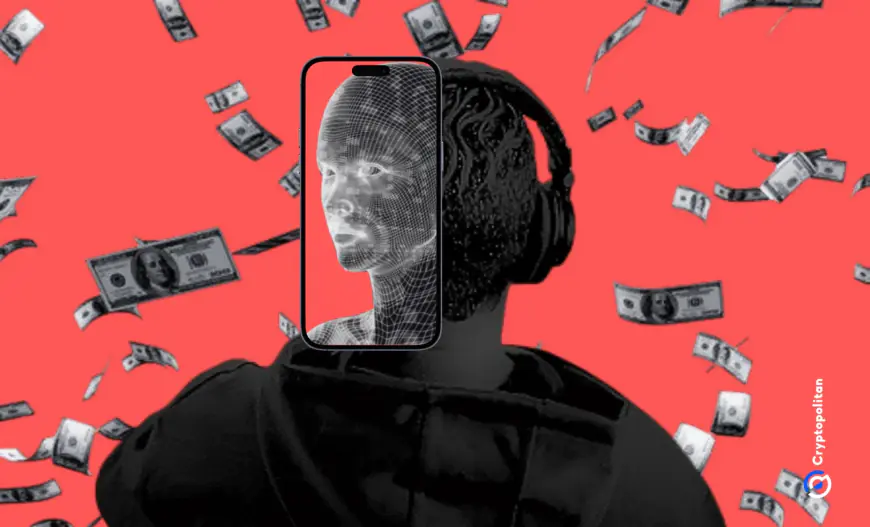Music producer Michael Smith used AI in a $10m streaming scam
Federal prosecutors have indicted Michael Smith, a 52-year-old North Carolina music producer for using AI to swindle streaming platforms of $10 in royalty payments since 2017. The musician used AI to create “hundreds and thousands” of tracks and then used them to earn millions of dollars. Michael Smith allegedly executed the streaming fraud with the […]

Federal prosecutors have indicted Michael Smith, a 52-year-old North Carolina music producer for using AI to swindle streaming platforms of $10 in royalty payments since 2017. The musician used AI to create “hundreds and thousands” of tracks and then used them to earn millions of dollars.
Michael Smith allegedly executed the streaming fraud with the assistance of stakeholders in the music industry in the US and around the world including the CEO of an unnamed AI music company.
Michael Smith artificially inflated music streams
Smith made use of automated programs to create accounts or bots for streaming music billions of times on several streaming platforms.
In an unsealed indictment, the Manhattan federal prosecutors charged the musician with three counts of wire fraud, wire fraud conspiracy and money laundering conspiracies. The indictment also details how Smith executed the plan he is accused of.
“Smith began working with the Chief Executive Officer of an unnamed AI music company and a music promoter to create thousands of thousands of songs that Smith could then fraudulently stream.”
– Indictment document.
According to the indictment, the loads of AI music tracks that Smith created were available on streaming platforms like Spotify, Apple Music, Amazon Music, and YouTube Music. To promote and cover up his fraudulent activities, the musician made some false and “misleading” claims to the streaming platforms and collection societies that include Mechanical Licensing Collective (MLC) and distributors.
This enabled him to divert over $1 million in streaming payments per year, which, according to the indictment “ultimately should have been paid to the songwriters and artists whose works were streamed legitimately by real consumers.”
The indictment also revealed that Smith would get thousands of songs each from the CEO of an AI music company upon which they entered a “Master Service Agreement” with the company. Later the company would supply upto 1,000 to 10,000 songs every month to Smith, who in turn would have ownership of the intellectual property rights in the songs.
As payment, Smith would then provide the “greater of $2,000 or 15% of the streaming revenue” to the AI music company.
In one of the email communications with the company, which was also included in the indictment, its CEO said: “Keep in mind what we’re doing musically here… this is not ‘music,’ it’s ‘instant music’ ;).”
Smith “repeatedly lied” about his activities
Over a period of time, several stakeholders in the music industry began to question Smith’s activities including a streaming platform, the MLC, and a music distributor. This resulted in the MLC pausing royalty payments by March and April 2023, after questioning him of possible fraudulent activities. Smith and his representatives “repeatedly lied” about the fraud and AI-generated music.
To cover up his tracks and avoid further suspicion from authorities, Smith created multiple accounts and spread fake plays across several songs. In an email to two of his partners in December 2018, Smith said:
“We need to get a TON of songs fast to make this work around the anti-fraud policies these guys are all using now.”
Smith
FBI acting assistant director, Christie Curtis, said they remain dedicated to plucking out bad actors that manipulate technology to make illicit profits at the expense of genuine artists and songwriters.
“The defendant’s alleged scheme played upon the integrity of the music industry by a concerted attempt to circumvent the streaming platforms’ policies,” said Curtis.
MLC CEO, Kris Ahrend, commended the justice department for its efforts towards tackling the alleged misconduct. This comes after the MLC recently announced a collaboration with Beatdapp, a music streaming fraud detection firm to “complement and enhance” the MLC’s streaming detection capabilities.
In July, Beatdapp revealed that streaming fraud takes about $2 billion out of artists’ royalties annually.
What's Your Reaction?









































































































